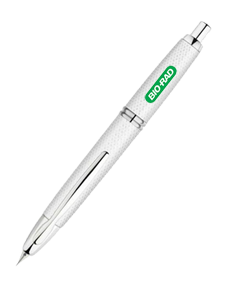
Popular topics

How to Successfully Manage the PhD-to-Postdoc Transition

After her PhD, Elisa moved to Grenoble, France, to do a postdoc in biophysical approaches to cell biology. She is currently on a collaboration trip at Hokkaido University, Sapporo, Japan, studying mechanical forces at the interface between cancer cells and normal cells.
In this guest blog, Elisa shares her tips on making the transition from being a PhD student to getting your first job in academic research as a postdoc.
 As you approach the end of your PhD, you may feel frustrated and drained. You have your thesis manuscript to write, not to mention the thesis defense, as well as outstanding publications to wrap up! It can feel like a lot to manage and there is so much at stake.
As you approach the end of your PhD, you may feel frustrated and drained. You have your thesis manuscript to write, not to mention the thesis defense, as well as outstanding publications to wrap up! It can feel like a lot to manage and there is so much at stake.
As I experienced, your academic career will depend on how you handle this crucial time. This is why five years after my PhD defense, I would like to share a few tips that I hope will make your transition from PhD to postdoc straight forward. Bear in mind, the new beginning may not be easy, but if you are organized and patient, everything will start to fall into place within 6 months!
Tips for 3-6 months before the end of your PhD
- Finish your PhD on time
Unless you really need an extension (for example if there is a critical experiment to do), try to complete your PhD on time. The final year of your PhD can be frustrating and demotivating as you juggle lab work with thesis writing. Try and break it down into manageable chunks to minimize the impact, especially on your health, or close relationships. Setting yourself goals helps to keep you motivated and focused on the end result – your doctorate. Completing your PhD on time will demonstrate to potential new labs, great organizational skills and your ability to work under pressure and meet deadlines.
-
 Get your paper published as soon as possible
Get your paper published as soon as possible
I know this is not always in your hands, but as you will have collected a significant amount of data, it is now time to pull them together, write a coherent story, and figure out what is missing. Preparing your data for publication (Figure 1) will focus your thoughts and might even form the basis of a chapter for your thesis. An important point to consider is that you never know what reviewers or editors will ask, so get your story out for revisions as soon as possible. You should aim to have your paper at the first or second revision stage (if not already published) by the time you leave your PhD group. If you leave the lab and someone else takes on your project it will add at least a year to your PhD project publication and may mean additional authors on the paper. Importantly having a first-author paper out will make your postdoc application stronger and more appealing.
- Start contacting laboratories early
It is best practice to start enquiring about postdoc positions in the early stage of your final year, to ensure you don’t miss any opportunities. Even if there aren’t any open positions in a lab, group leaders can apply for funding if they feel you would be a good addition to the group. It often takes several months from the interview to start a new position so apply early, and if the lab likes you, they will be flexible and wait for you to finish your PhD.
- Acquire a new expertise
Since you will be about to start a new project, why not add an extra line or two to your CV? You could learn a different technology, set up a novel protocol, or establish a new tool. Scientists who embrace different fields, cross boundaries between disciplines, or develop new technologies are very likely to be appealing for tenure-tracked positions. By making your profile unique, you will be one of a kind expert and can bring these skills and knowledge to any postdoc position.
- Change country. Learn a new language
Personally, I would recommend it. Many of my friends who continued as postdocs, moved countries and, although this can be challenging at first, having to reorganize your life and perhaps even learn a new language, in the scientific community it is common and you will certainly find people ready to help you. I found applying and interviewing for a postdoc in four different countries across the world very exciting and motivating. When I finally chose and accepted the position in France, looking for apartments and exploring a new city kept me motivated until the end of my PhD. Living abroad will expand your cultural horizons and help you to learn another language - known to favor brain plasticity and improve memory and logic! All good things that you will benefit from while developing your scientific career.

Fig.1. Timeline of Publications.
Tips for 3-6 months after the beginning of your postdoc position
- Get organized
This is a new start, and an opportunity to be the perfectly organized scientist you have always wanted to be. During your PhD, you have learned the hard way which methods work best for you to keep your project organized, your analysis in order, and files traceable. So get off to the best possible start. I stopped using a lab-book and started filing all my data in folders organized by projects and methods. Inside I had subfolders labeled by experimental dates. After five years of collecting data, I found this was the best way; so use whichever method works best for you.
- Always write down changes to protocols
During your PhD, you may have made the mistake of not writing down corrections or changes to your protocols. Do not repeat this again! Write down exactly the changes you make to all of your methods. It will help you repeat experiments, teach other lab members, and get reproducible results. Importantly, when you need to write your methods down for publications you have them to hand.
- Write your story from day one
It can sometimes be difficult to pull all your data into a logical story. Starting with a precise project and goal in mind will help you stay focused, and save time. However, always remember to be open to unexpected results! Sometimes important conclusions come from unforeseen findings.
- Start collaborations
You want people to recognize you as an expert in your field. I would recommend networking with other scientists at conferences or seminars and offer or suggest experiments that you could do for them or together. This will help not only create a solid professional network, but also secure more publications. Moreover, if you get collaborations in other countries, you may have the chance to travel, which is always a bonus!
- Collect unpublished results and open questions in a separate folder
If you have a good idea, even if it is not practical right now – write it down. Never forget data or ideas. Later on, this information will be a rich source of inspiration for future grant writing.
These are my top tips for successfully managing your transition from PhD to postdoc, I hope you find them helpful.
Elisa.
Do you have any words of wisdom that you could share with early-career researchers? Join in the conversation on Bio-Rad’s social media channels by using #ECRWisdom .
Are You an Early Career Researcher?
Bio-Rad has a range of resources such as webinars, podcasts, and specialist protocols designed to support your research.
You may also be interested in...

View more Guest Blog or Careers blogs















